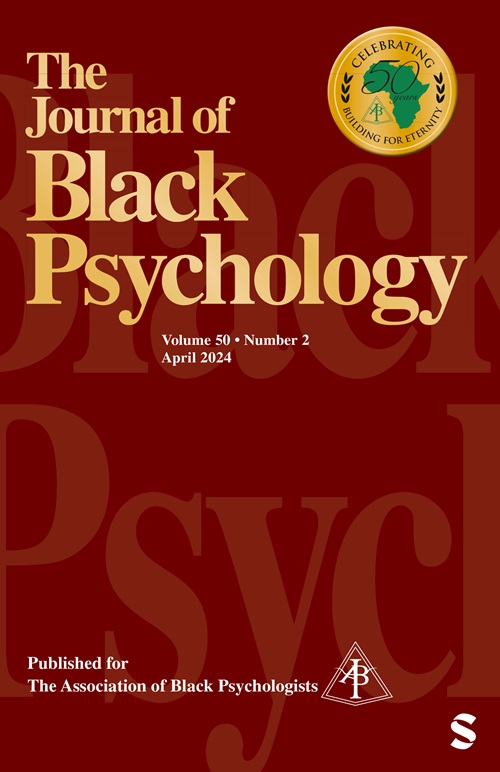通过非裔美国人的元去人性化来研究种族歧视与抑郁症状的关系:种族身份重要吗?
IF 2.2
3区 心理学
Q2 PSYCHOLOGY, MULTIDISCIPLINARY
引用次数: 3
摘要
尽管大量的实证工作记录了非裔美国人被其他种族群体非人化的方式,但没有研究调查感知非人化(即,元非人化)与非裔美国人心理健康之间的关系。在本研究中,我们通过元去人性化检验了种族歧视对抑郁症状的间接影响,并探讨了这种间接影响是否取决于种族认同(即中心性、私人关怀)。非裔美国学生在美国中西部地区的一所大学实验室完成了测试(N = 326;男性= 19.7,女性占72.4%)。我们发现种族歧视通过元非人性化间接与抑郁症状相关的程度取决于种族认同维度。具体而言,种族歧视通过元去人性化对抑郁症状的间接影响仅对中心性和私人关怀相对较高的个体有意义。这项研究表明,在对自己的种族群体有强烈认同感和积极看法的非裔美国人中,后去人性化的作用更强。我们在社会认知理论的背景下讨论这些结果。本文章由计算机程序翻译,如有差异,请以英文原文为准。
Examining Racial Discrimination’s Association With Depressive Symptoms Through Metadehumanization Among African Americans: Does Racial Identity Matter?
Though considerable empirical work has documented the ways in which African Americans are dehumanized by other racial groups, there is no research examining how perceiving dehumanization (i.e., metadehumanization) is associated with the mental health of African Americans. In this study, we examined the indirect effect of racial discrimination on depressive symptoms through metadehumanization and explored whether this indirect effect was contingent on racial identity (i.e., centrality, private regard). African American students completed measures in a university lab located in the Midwestern region of the United States (N = 326; Mage = 19.7, 72.4% women). We found that the degree to which racial discrimination was indirectly associated with depressive symptoms through metadehumanization was contingent on racial identity dimensions. Specifically, the indirect effect of racial discrimination on depressive symptoms through metadehumanization was only significant for individuals who were relatively higher on centrality and private regard. This research suggests that the role of metadehumanization is stronger among African Americans who strongly identify with and have positive views of their racial group. We discuss these results in the context of social cognitive theories.
求助全文
通过发布文献求助,成功后即可免费获取论文全文。
去求助
来源期刊

Journal of Black Psychology
PSYCHOLOGY, MULTIDISCIPLINARY-
CiteScore
8.00
自引率
5.80%
发文量
22
期刊介绍:
The Journal of Black Psychology publishes scholarly contributions within the field of psychology toward the understanding of the experience and behavior of Black populations. This includes reports of empirical research and discussions of the current literature and of original theoretical analyses of data from research studies or programs. Therefore, the Journal publishes work in any of the areas of cognition, personality, social behavior, physiological functioning, child development, education, and clinical application, in addition to empirical research and original theoretical formulations outside traditional boundaries, all integrated by a focus on the domain of Black populations and the objective of scholarly contributions.
 求助内容:
求助内容: 应助结果提醒方式:
应助结果提醒方式:


